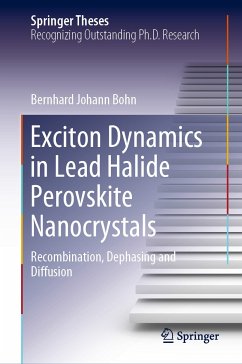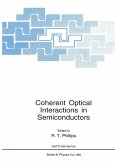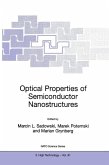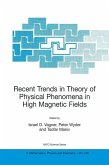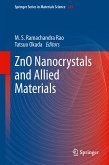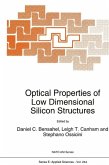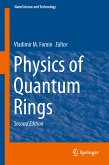In this thesis, the recombination, dephasing and diffusion of excitons in perovskite nanocrystals is investigated using time-resolved spectroscopy. All these dynamic processes have a direct impact on the light-emitting device performance from a technology point of view. However, most importantly, the insights gained from the measurements allowed the author to modify the nanocrystals such that they emitted with an unprecedented quantum yield in the blue spectral range, resulting in the successful implementation of this material as the activelayer in an LED. This represents a technological breakthrough, because efficient perovskite light emitters in this wavelength range did not exist before.
Dieser Download kann aus rechtlichen Gründen nur mit Rechnungsadresse in A, B, BG, CY, CZ, D, DK, EW, E, FIN, F, GR, HR, H, IRL, I, LT, L, LR, M, NL, PL, P, R, S, SLO, SK ausgeliefert werden.

